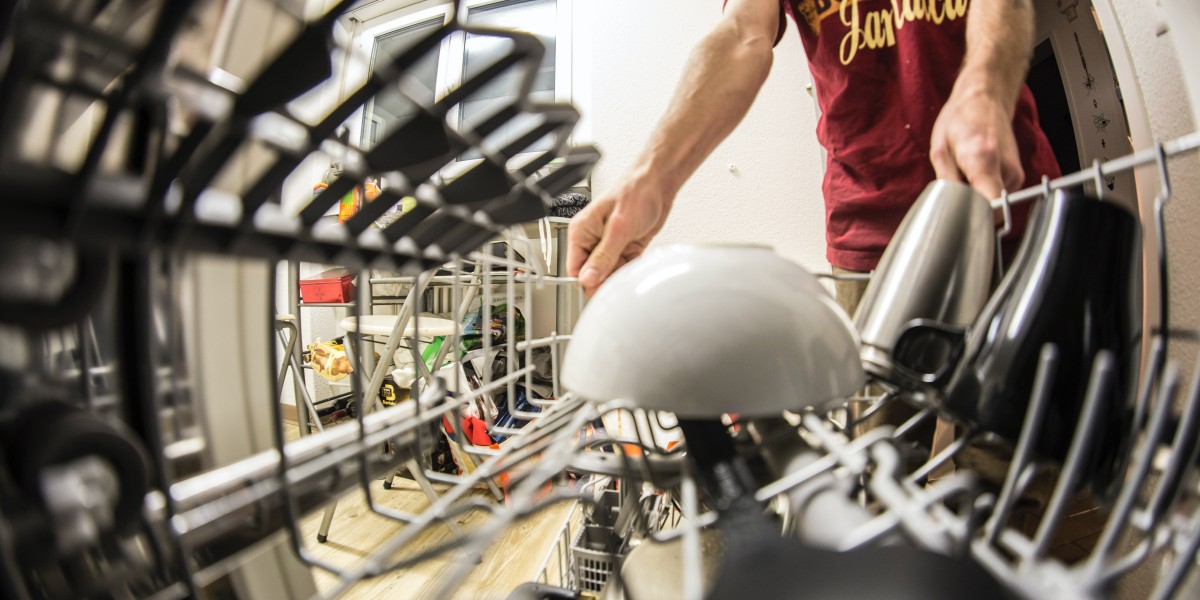Introduction
A dishwasher is a remarkable appliance in the modern kitchen, offering the convenience of automated dish cleaning. It saves you time and effort, but like any other household appliance, dishwashers are prone to wear and tear over time. When your dishwasher breaks down, it can be a frustrating experience, and that's where the need for dishwasher repair arises. In this comprehensive guide, we'll discuss everything you need to know about appliance dishwasher fixing, fixing a broken dishwasher, and dishwasher service and repair.
I. Understanding Dishwasher Basics
Before diving into dishwasher repair, it's essential to have a basic understanding of how these machines work. A dishwasher typically consists of several key components, including a pump, motor, heating element, spray arm, detergent dispenser, and various sensors. These parts work together to clean your dishes efficiently. When one of these components malfunctions, it can lead to problems with your dishwasher's performance.
II. Common Dishwasher Issues
To effectively perform appliance dishwasher fixing, you must be aware of the most common issues that can plague your dishwasher. Here are some of the prevalent problems you might encounter:
Dishwasher Doesn't Start: If your dishwasher doesn't turn on, it could be due to a faulty power source, door latch, or a malfunctioning control panel.
Poor Cleaning Results: When your dishes come out dirty or covered in residue, it may indicate issues with the spray arm, pump, or water inlet valve.
Leaking Dishwasher: Leaks can be caused by damaged door gaskets, a defective pump seal, or a clogged drain hose.
Unusual Noises: Loud or unusual sounds during the dishwasher cycle may point to problems with the motor, wash impeller, or spray arm.
Dishwasher Not Draining: A dishwasher that doesn't drain properly may have a clogged filter, blocked drain hose, or a malfunctioning drain pump.
III. DIY Troubleshooting
Before seeking professional dishwasher service and repair, you can attempt some basic troubleshooting steps:
Check for Power: Ensure that the dishwasher is properly plugged in and that the circuit breaker hasn't tripped.
Inspect the Door Seal: A damaged door seal can lead to leaks, so examine it for any visible cracks or wear.
Clean Filters and Spray Arms: Remove and clean the filters and spray arms to prevent blockages.
Unclog the Drain: If your dishwasher isn't draining, look for any obstructions in the drain hose or pump.
Examine the Detergent Dispenser: Make sure the detergent dispenser is functioning correctly.
IV. Appliance Dishwasher Fixing
When your DIY troubleshooting efforts don't resolve the issue, it's time to consider appliance dishwasher fixing. Here's what you can do:
Consult the Owner's Manual: The dishwasher's manual often contains troubleshooting tips specific to your model.
Order Replacement Parts: If you've identified the faulty component, you can order replacement parts from the manufacturer or a reputable supplier.
Online Tutorials: There are numerous online resources, including video tutorials, that can guide you through the repair process.
Tools and Safety: Ensure you have the necessary tools and follow safety guidelines during the repair process.
V. Fixing a Broken Dishwasher
If you're not comfortable attempting dishwasher repair on your own or if the issue is complex, it's advisable to seek professional help. Fixing a broken dishwasher should be left to experts for the following reasons:
Safety: Dishwashers are electrical appliances, and attempting complex repairs without expertise can be dangerous.
Warranty Preservation: Many dishwashers come with warranties that may be voided if you attempt unauthorized repairs.
Efficiency: Professional technicians have the training and tools to diagnose and repair issues efficiently.
Longevity: Expert repairs are more likely to extend the lifespan of your dishwasher.
VI. Dishwasher Service and Repair
When searching for a dishwasher service and repair provider, keep the following factors in mind:
Experience and Reputation: Look for a service with a proven track record of quality repairs and satisfied customers.
Certifications: Technicians with certifications from relevant authorities are more likely to provide reliable services.
Promptness: A responsive service that can quickly schedule repairs can save you from prolonged inconveniences.
Warranty on Repairs: Ensure that the service offers a warranty on the parts and labor used in the repair.
Transparent Pricing: Request a detailed estimate before proceeding with the repair to avoid hidden costs.
Conclusion
In conclusion, understanding how your dishwasher works and being aware of common issues is the first step in effective dishwasher repair. While some minor problems can be resolved with DIY efforts, complex issues and major malfunctions are best left to experienced professionals. When seeking dishwasher service and repair, prioritize reputation, certifications, and transparency to ensure that your appliance is in safe and capable hands.
Proper maintenance and timely repairs can significantly extend the life of your dishwasher, saving you money and the frustration of dealing with unexpected breakdowns. So, whether it's about appliance dishwasher fixing, fixing a broken dishwasher, or seeking dishwasher service and repair, make informed decisions to keep your kitchen running smoothly.








